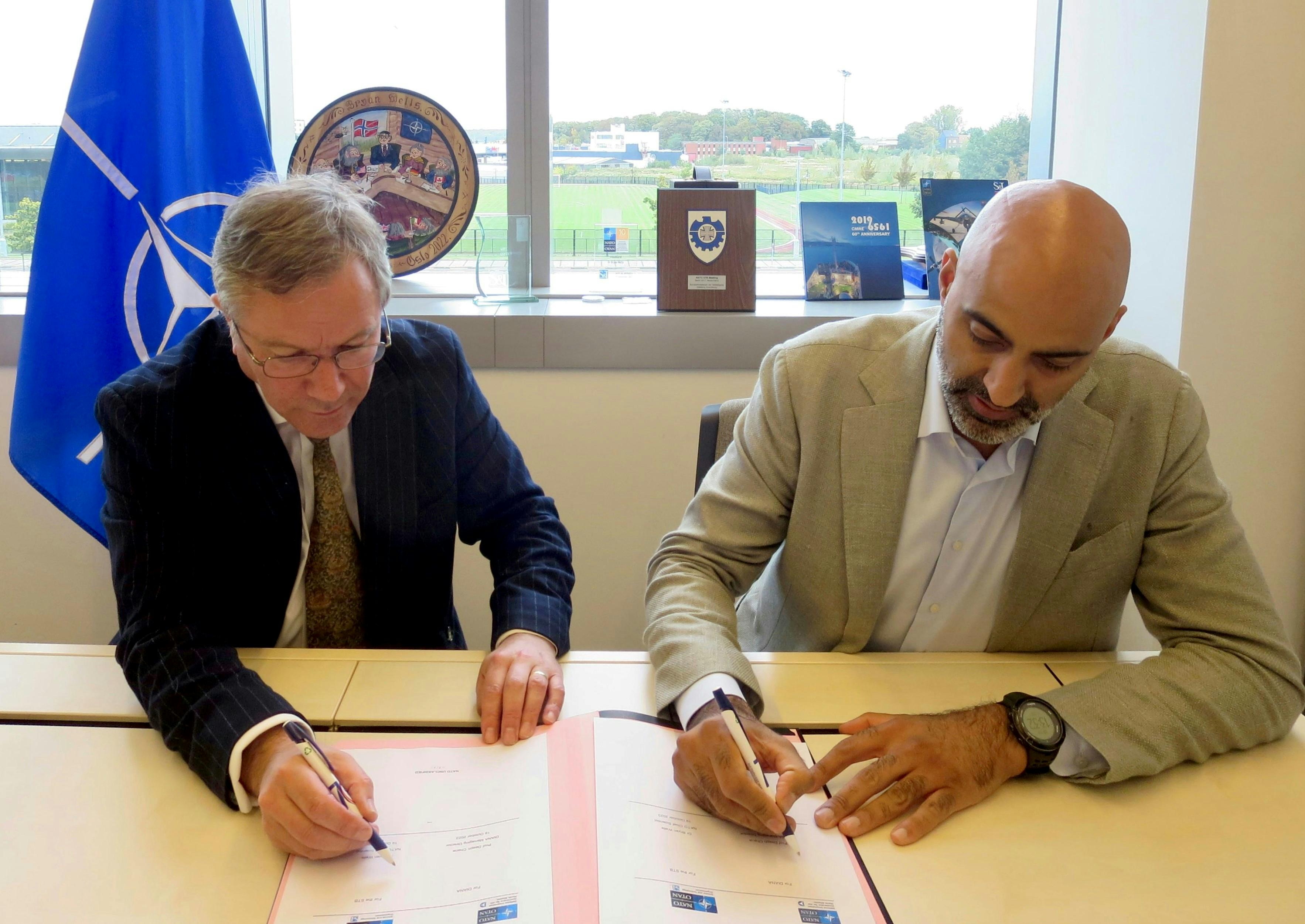
The NATO Science and Technology Organization (STO) and the Defence Innovation Accelerator of the North Atlantic (DIANA) have signed a Memorandum of Understanding (MoU), marking an important milestone in their ongoing collaborative partnership. Dr Bryan Wells, NATO Chief Scientist and Chair of the Science and Technology Board (STB), and Professor Deeph Chana, Managing Director of DIANA, signed the MoU on 19 October in Brussels, Belgium, setting the stage for innovative endeavours and shared progress.
The MoU highlights the commitment of both parties to strengthen their partnership and work together on strategic initiatives in innovation. It seeks to define and establish the general terms and conditions that will facilitate the mutually beneficial cooperation between DIANA (including its constituent and affiliated elements) and the STO (including the national subject experts who conduct the Collaborative Programme of Work through the STO Panels and Group).
The MoU encompasses a wide range of collaborative efforts, including but not limited to:
- STO contributions to DIANA Strategic Direction and Challenge Formation;
- STO support to DIANA Challenge Programs;
- DIANA participation in STB meetings;
- Strengthening the Validation, Verification & Accreditation community.
The Centre for Maritime Research and Experimentation (CMRE), an executive body of the STO, is also a DIANA Test Centre. This role is governed by a separate MoU, underscoring the dynamic nature of the STO-DIANA partnership.
“As our cooperation with DIANA moves to the next level, I am pleased that we have signed this Memorandum of Understanding today, to ensure that there is a sound basis for moving forward together,” said Dr Wells, who also participates in DIANA Board of Directors meetings.
“This Memorandum of Understanding signifies a new chapter in our partnership with the NATO Science and Technology Organization,” said Prof Chana. “We are committed to the shared goals and objectives outlined in this memorandum, and we believe that this strategic collaboration will drive innovation, foster excellence, and create positive impacts in our respective fields.” Published by STO | 